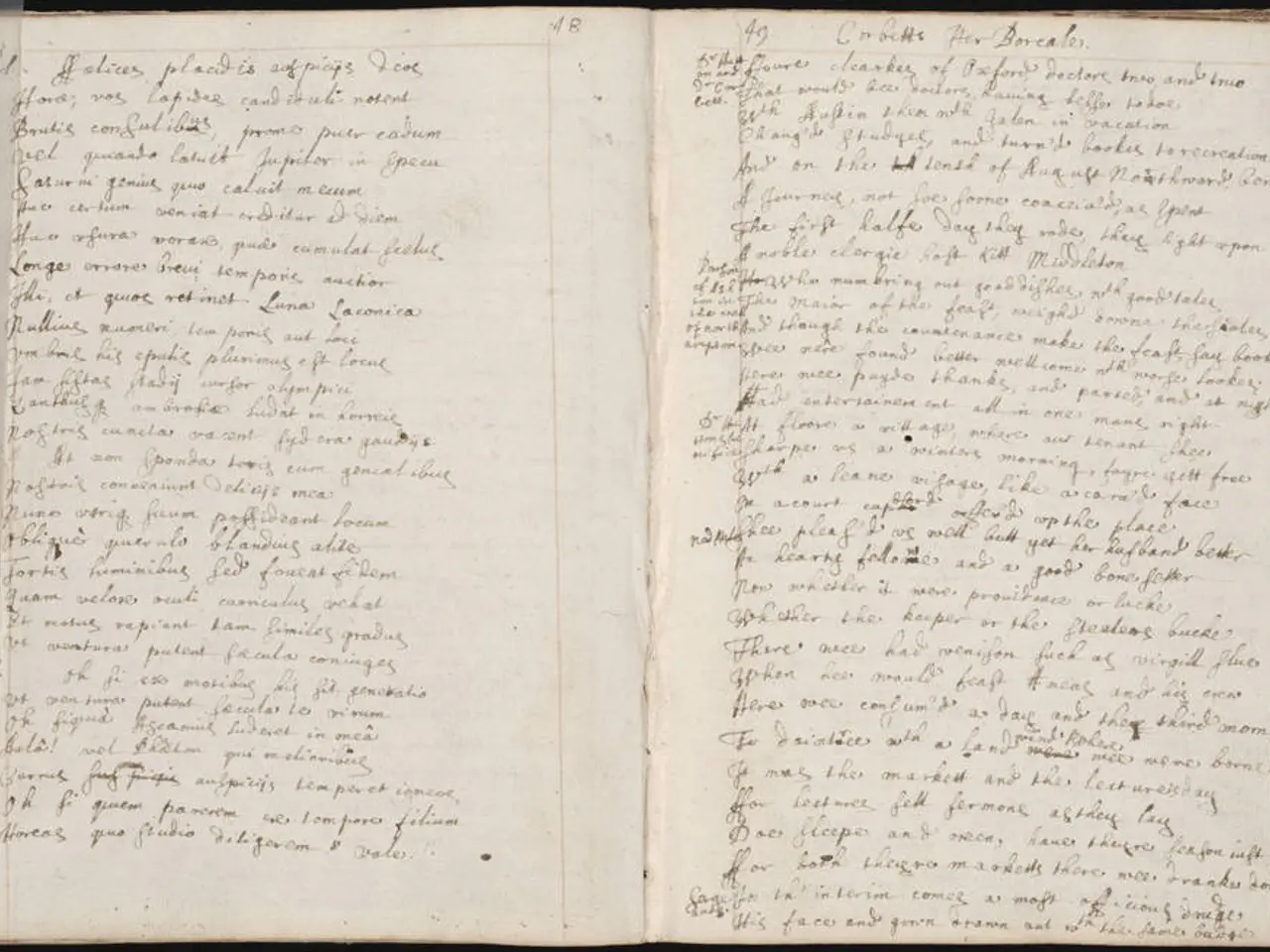Criticism intensifies over the discussion concerning Brosius-Gersdorf, as expressed by the Minister.
In a surprising turn of events, Frauke Brosius-Gersdorf, the constitutional judge candidate for Lower Saxony, has withdrawn from the appointment process for the Federal Constitutional Court [1][2].
The decision comes after a public debate surrounding her nomination, which was met with strong resistance from the Union faction, particularly the CDU/CSU [3]. The controversies centered on her political and legal stances, including her advocacy for liberalizing abortion laws and support for banning the far-right AfD party [1][3][5].
Kathrin Wahlmann, the Minister of Justice for Lower Saxony, has taken a clear stance on the matter, criticizing the public debate and expressing regret at Brosius-Gersdorf's withdrawal [2]. Wahlmann called for the value of democracy and the rule of law to be kept in focus throughout the process and stated that discussions like those held in recent weeks can cause harm to both the person and the institution [2].
The election process for three candidates, including Brosius-Gersdorf, has been affected by this resistance, and the election has been postponed [3]. The Union faction's resistance contributed to the public debate surrounding Brosius-Gersdorf's appointment, leading to her strategic decision to withdraw to preserve coalition stability and democracy amid intense ideological conflicts [1][2][3].
Brosius-Gersdorf, a legal professor from Potsdam, announced her withdrawal from the candidacy for a judge at the Federal Constitutional Court on Thursday [2]. In a statement, she expressed her selfless decision, aiming to prevent damage to the Federal Constitutional Court [2].
The delay in the election process raises concerns about the future of the Federal Constitutional Court and the potential impact on German democracy. The Union faction has yet to announce a new candidate, and the election process for the candidates is yet to be rescheduled [4].
References:
[1] "Frauke Brosius-Gersdorf zieht ihre Kandidatur für das Bundesverfassungsgericht zurück" (ARD, 2022).
[2] "Frauke Brosius-Gersdorf zieht sich als Kandidatin für das Bundesverfassungsgericht zurück" (Tagesspiegel, 2022).
[3] "Bundestag verzögert Wahl des Bundesverfassungsrichters Brosius-Gersdorf" (Zeit Online, 2022).
[4] "Frauke Brosius-Gersdorf: CDU-Chef Merz verteidigt Kandidatin gegen Angriffe" (Welt, 2022).
[5] "Frauke Brosius-Gersdorf: CDU-Kandidatin für Bundesverfassungsrichter unter Druck" (Spiegel Online, 2022).
A public debate centered around Frauke Brosius-Gersdorf's nomination to the Federal Constitutional Court was met with strong resistance from the Union faction, particularly the CDU/CSU, and involved controversies regarding her political and legal stances, such as her advocacy for liberalizing abortion laws and support for banning the far-right AfD party. Amidst these intense ideological conflicts, Brosius-Gersdorf decided to withdraw from the appointment process, aiming to preserve coalition stability and democracy by preventing further damage to the Federal Constitutional Court. The Union faction's resistance contributed significantly to the delay in the election process, raising concerns about the future of the Federal Constitutional Court and German democracy. In this context, the general news, policy-and-legislation, and politics are intertwined.




